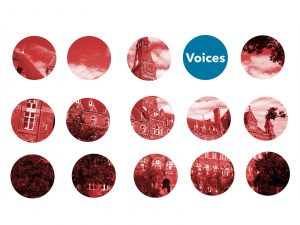At the start of this semester, Georgetown announced the launch of a program in Jakarta, Indonesia. The launch surprised some Hilltop students, who received one message about the program in November and another in January after faculty and one graduate student had already landed in the country’s capital city. The sudden announcements matched how swiftly the initiative has been developing.
The Jakarta program made its official launch just two and a half years after Dr. Yuhki Tajima, director and co-founder of the initiative and Georgetown’s director of East Asian Studies, first conceived of the idea for a program focused on diplomacy and policy in the Asia-Pacific region. Now approaching the semester’s halfway point, faculty and students updated the Voice on life in the Jakarta program and plans for future semesters.
For the first semester in Jakarta, most students opted for a virtual option, but graduate student Brandon Wu (MASIA ’25, SFS ’24) took the plunge to become the only Hilltopper to study in-person at the program for its first semester.
Wu is one of about 25 students participating in the semester-long environmental “policy labs” geared towards graduate students. He has found that, despite Georgetown’s proximity to national politics, he’s felt more on-the-ground in studying public policy in Jakarta than he did in his time on the Hilltop.
“Rather than reading about it [public policy] theoretically in PDFs or hearing from guest institutions, you’re hopefully going to be able to hear from the voices of the community,” Wu said.
Wu attributes that sense of closeness to field trips around Jakarta as well as in the countryside of West Java, which is a province of Java, one of the Indonesian islands. Wu also appreciates the range of guests that the policy labs have brought in, from former mining executives to government officials to biodiversity experts working with indigenous groups in Indonesia.
To Wu, studying at the Jakarta program also feels more self-reliant than life on the Hilltop or even a typical study abroad experience at Georgetown.
“As a student at Georgetown, you have a lot of built-in community, even as a grad student,” Wu said. “Right now, the Jakarta branch is literally the 37th floor of an office building. It’s like three classrooms, a really great lounge, and really nice spaces to do work. Trying to figure out how to build relationships and build connections compared to a typical study abroad experience is a challenge I’m looking forward to overcoming.”
Living in Jakarta has also led Wu to question his and the D.C. campus’ outlook on Southeast Asian policy.
“A lot of the preconceived notions that we have in D.C. about Southeast Asia, about Indonesia, about the Global South at large are not super tuned in with the energy on the ground and the issues that people are talking about here,” Wu said.
He specifically noted what he sees as Georgetown’s often U.S.-focused approach to the China-Taiwan tensions and notions of power in the Association of Southeast Asian Nations (ASEAN).
The Jakarta location’s second program, Executive Master in Diplomacy Affairs (Asia Pacific), has facilitated a different kind of change in perspective. The program is in-person and geared towards professionals at the midway point of their careers. Tajima has watched students find unexpected common ground in class discussions.
The classroom setting allows government representatives and environmental scientists to have a direct conversation with students with careers in the private sector without the backdrop of negotiation.
“It allows them to put down their guard and share information with each other,” Tajima said. “They’ve realized there are things that each side could learn from that they hadn’t thought of before because they were always coming from a negotiating or problem-solving stance.”
Tajima has had this purpose in mind from the program’s conception. He said that his vision of a program in Jakarta was inspired by Andy Warhol’s The Factory, an art school that unites students from all ages and backgrounds to create unique pieces that build off each other’s perspectives.
According to Dr. Scott Guggenheim, Adjunct Professor of Global Human Development who has advised the governments of Afghanistan and Indonesia and helped Tajima develop the program, choosing Jakarta as the location suited the purpose of diverse classrooms and field work. Guggenheim pointed to Jakarta’s position as the capital city of the fourth-most-populous country in the world, adding that Indonesia’s population contains diverse perspectives that developed under a range of political systems.
“Indonesia is big, complex, it’s a multi-ethnic state,” Guggenheim said. “Thirty years ago, it was a military dictatorship, now they’ve finished the world’s largest national unification election program as a democracy.”
Although the past months of student life in Jakarta have exceeded Tajima and Guggenheim’s hopes, executing the program has not been without challenges, especially during the early stages.
One challenge arose in recruiting grad students from Georgetown in D.C. Guggenheim and Tajima were not able to advertise outside of Indonesia until three weeks before classes started. In future semesters, they plan to bring more graduate students from the Hilltop to Jakarta.
Tajima and Guggenheim also hope to expand enrollment to undergraduates and include new courses beyond public policy, such as religious studies or languages.
Guggenheim anticipates challenges for policymakers in the Asia-Pacific more generally during Trump’s administration, due to its recent crackdown on Diversity, Equity, and Inclusion (DEI) initiatives abroad.
“The equity arguments and the inclusion arguments, whether the U.S. likes it or not, is a fundamental aspect of how development functions here,” Guggenheim said. “I’m not sure how we’re going to navigate that.”
For Guggenheim, a program like Jakarta was long overdue for U.S. universities like Georgetown with recognized international relations programs.
“It’s just amazing that people hadn’t done this a lot earlier. We’ve known for a long time that East Asia and Southeast Asia are part of the global economy that’s developing pretty fast,” Guggenheim said. “I’m very glad that Georgetown, for all of its conservatism, is taking a plunge and opening here.”
Editor’s Note: The language in this article has been updated to reflect that the Jakarta program is not a Georgetown “campus.”







